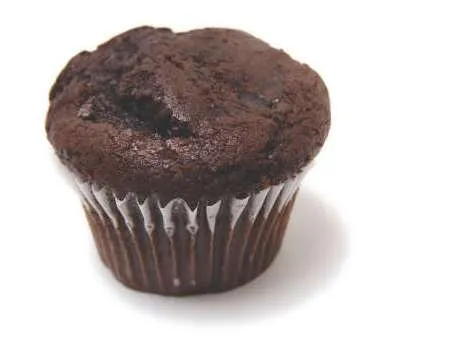
For most of us, hunger is what drives us to eat. The rest of the time we eat because we enjoy it and sharing food with others is a social event. If we overeat one day after an especially good meal, we usually unconsciously compensate over the next few days by eating less. Over time, any excesses are balanced out and body weight tends to remain stable.
For others, eating represents a psychological conflict and every mealtime is a battle with food. The largest group of people with eating disorders are the compulsive eaters. Any keen cyclist who finds that they seem to be constantly eating might think that they fall into this group!
Compulsive eaters are people who regularly eat much more food than is needed, often as a binge as bulimics do, but without the purging. The trigger to overeat is often a particular problem in life - divorce, redundancy, boredom or having to deal with a death - and the food is used as a comfort. But compulsive eating is much more than comfort eating - which most people do from time to time. Huge quantities of food are eaten which acts like a fix in the same way that an alcoholic needs alcohol. Not surprisingly, most compulsive eaters put on weight and become chronically obese.
Some sufferers combine binges with periods of starvation while others take to their bicycles and become fanatical about burning calories in an effort to prevent weight gain. These periods of eating/ starving and intense exercise result in huge fluctuations in blood sugar levels. When your blood sugar level is low, you know about it - especially when out on a bike. The normal reaction is to reach for a banana or suitable carbohydrate snack, but the compulsive eater is likely to be in starvation mode at this time.
Low blood sugar can be dangerous since it results in poor concentration, slow reactions and tired muscles - which become prone to injury. Binge/starve compulsive eaters can benefit from similar practical counselling advice to that for bulimia sufferers. Self-help groups such as Overeaters Anonymous can also offer support.
Popping supplements
Health from a bottle is a tempting idea. If a claim made for a single supplement sounds too good to be true... it probably is! There is no doubt that vitamin deficiencies have a dramatic effect on health, but it does not follow that mega-doses produce an extra boost. In fact, high doses of certain nutrients (vitamins A, D, B6, niacin, selenium, chromium and iron) taken over a long time can do more harm than good and cause imbalances within the body.
It is best to seek out real foods that provide a range of vitamins and minerals. The natural package of food with its nutrient content is more powerful than manufactured vitamins swallowed as a pill.
However, the nutrient content of most fruits and vegetables has steadily decreased over the years. There are times when vitamin and mineral requirements are higher and a supplement is a useful way to boost intake. Choose a good multivitamin and mineral complex (Quest or Viridian brands are good quality) rather than individual nutrients. During an intense training programme or after a strenuous ride an antioxidant supplement (containing vitamins A, C & E) can help promote recovery.
Weekend bingeing
You are a saint and eat well chosen, healthy foods from Monday to Friday then binge drink on the weekend.
This is a particularly common pattern for competitive cyclists who approach much of life in an all or nothing manner. Binge drinking may be a release from self induced pressures of training or as a reward for hard work during the week. Alcohol can be useful and one or two drinks can help regulate blood fats and cholesterol. However, a binge of more than six units (3 pints normal strength beer or 6 small, pub measure glasses of 11.5% alcohol wine) can undo much of your hard work in training and damage your health. Alcohol is toxic to the body and your liver detoxifies alcohol by converting it to fat. If you carefully avoid over eating, it may be the alcohol you consume which adds to your waistline.
If you enjoy alcoholic drinks, it is much better to have one or two drinks each day than a binge session at the weekend. It takes around 48 hours for the body to recover and rehydrate after a binge session.
After a strenuous cycle ride, your muscle and liver glycogen will be low. Make your first drink a big glass of water or diluted fresh fruit juice. Avoid drinking beer, wine or cider for two hours after exercise since alcohol interferes with glycogen resynthesis.